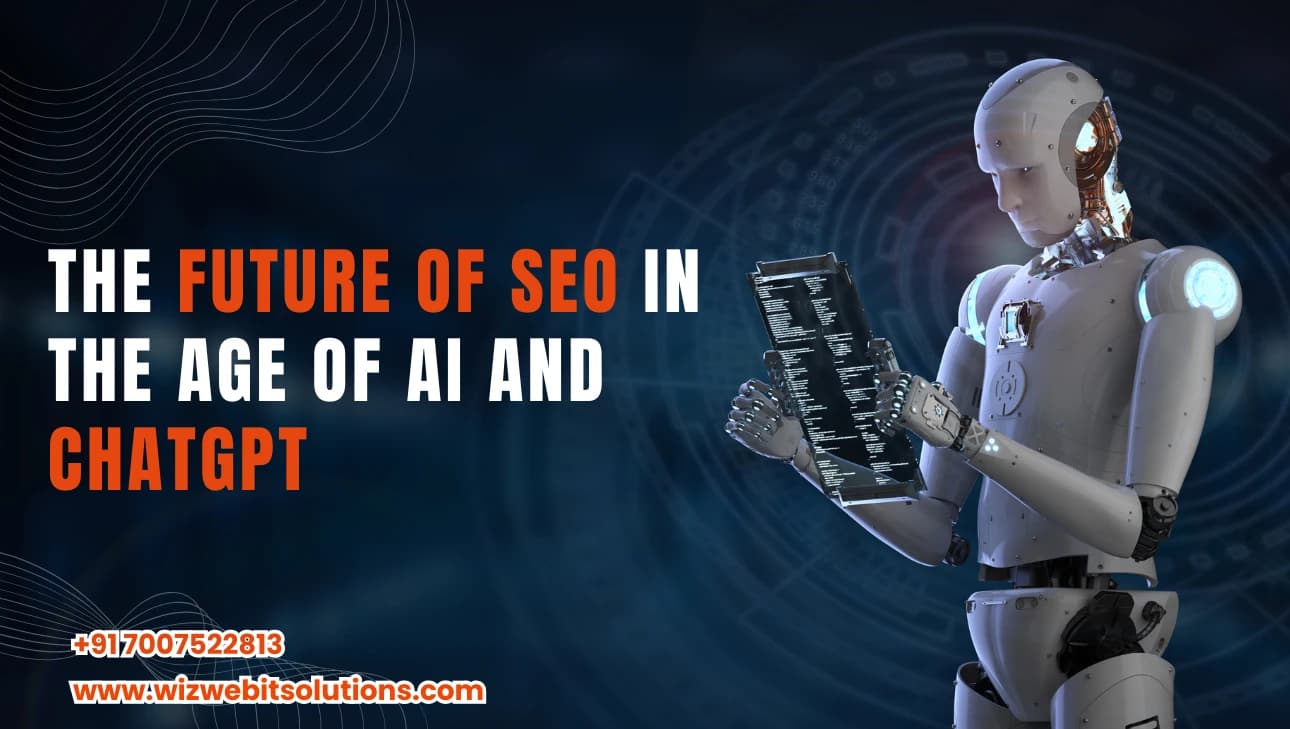Get in Touch
- Phone
+91 700 752 2813
- Email Now
hello@wizweb.in
Office No - 204 A-140, Sector 63 Road Noida, Uttar Pradesh 201301

The Future of SEO is moving fast. If you run a website, work in marketing, or use Digital Marketing Services, you are probably already feeling the change. New AI tools like ChatGPT and AI features inside search engines are changing how people ask questions online and how search engines decide what to show. This article explains, in simple English, what is happening and what you should do next. Read on and you’ll have a clear plan to keep your site useful and visible.
Search used to be mostly about matching the words on a page with the words people typed. Now search engines want to understand what the user really means. Big AI models can read text, look at images, and even understand video. They can give a short, helpful answer right on the search page. That means many people get what they need without clicking to your website. This shift to quick, direct answers is a big part of the Future of SEO.
Search engines also use AI to rank pages by how useful they are, not just by how many times a keyword appears. So simple keyword stuffing no longer works. Instead, content that truly solves a problem gets more attention.
When users get answers on the results page, your site can lose visits. Less traffic can mean fewer sales or fewer newsletter signups. That worry is real. But AI can also help: tools like ChatGPT sometimes link to sources, and being the clear, trusted source can bring new kinds of visitors. Today, SEO strategies must aim for visibility both in traditional search and inside AI-powered systems. If you work with Digital Marketing Services, ask them to plan for both.
Here are easy rules you can start using today to prepare for the Future of SEO:
AI tools can speed up research, suggest topics, and draft text. If you use Digital Marketing Services, AI can make content planning faster and cheaper. But be careful: AI can make mistakes, invent wrong facts, or produce bland content. Always check facts, add your own experience, and edit the draft so it reads like a human wrote it. Human stories, examples, and real data are what set your content apart in the Future of SEO.
Some content types do very well in an AI-driven search world:
If you use Digital Marketing Services, make sure these formats are part of your plan.
Clicks are still useful, but now look at more signs of performance:
These signals show whether people trust your content, which will help you in the Future of SEO.
AI is changing how answers are found and shown, but humans will always matter. Real experience, clear stories, and useful examples cannot be fully replaced by models. The Future of SEO rewards creators who use AI smartly while keeping people first. If you work with Digital Marketing Services, ask them to focus on trust, clarity, and helpfulness. Do that, and your content will stay important — no matter how search keeps changing.